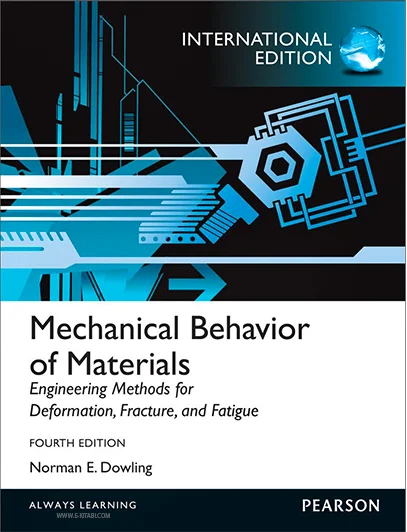Mechanical Behavior of Materials 4th Edition- for free

The study of deformation and fracture of materials is called mechanical behavior of materials. Knowledge in this field is fundamental to avoiding this type of failure in engineering applications. One aspect of this field is the physical testing of samples of materials by applying forces or deformations to them.
If the behavior of a material is quantitatively known from testing or from published test data, then the potential for success of that material in a particular engineering design can be evaluated.
About the Book
This book can be used as a textbook for courses on the mechanical behavior of materials at the junior or senior undergraduate level or, with an emphasis on the later chapters, at the first-year graduate level. The book covers traditional topics in the field, including materials testing, yield and plasticity, stress-based fatigue analysis, and creep.
The relatively newer methods of fracture mechanics and strain-based fatigue analysis are also considered and treated in practical detail. For the practicing engineer with a bachelor’s degree, this book is an accessible reference for the topics covered.
The book emphasizes analytical and predictive methods that are useful to engineering designers to avoid structural failures. These methods are developed from an engineering mechanics perspective, where the resistance of a material to failure is quantified by properties such as yield strength, fracture toughness, and stress-life curves for fatigue and creep.
The wise use of material properties data requires some understanding of how the data is obtained and a clear understanding of its limitations and significance. Therefore, material tests used in various disciplines are generally discussed before analytical and predictive methods are considered.

Hello my friend! I want to say that this article is amazing, nice written and include approximately all important infos. I¦d like to see more posts like this .